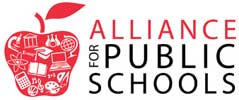According to PBS News Hour, “High school students’ scores on the ACT college admissions test have dropped to their lowest in more than three decades, showing a lack of student preparedness for college-level coursework, according to the nonprofit organization that administers the test. Scores have been falling for six consecutive years, but the trend accelerated during the COVID-19 pandemic.”
A record number of test takers met none of the ACT’s benchmarks for success. This means their results in English, reading, math and science predict they are unlikely to earn Bs or Cs in entry-level college coursework.
From the New York Times, “For the 1.4 million ACT test-takers in the high school class of 2023, the average composite score on the exam was 19.5 out of 36, the lowest score since 1991, according to the nonprofit. Forty-three percent of students did not meet any of the subject-matter benchmarks, up from 36 percent in 2019.
These test takers were high school freshmen when the coronavirus pandemic interrupted their educations, sending many of them into months of online learning. The achievement declines on the ACT are broadly in line with pandemic-era trends from other national exams.”
However, it’s impossible to interpret the cause of the scores. Major changes have occurred in both college admissions and high school testing practices during that time.
Just 43 percent of college applicants submitted SAT or ACT scores last year, according to a report from Common App, down from 74 percent before the pandemic. That change has been driven by colleges embracing test-optional admissions policies, in part because of concerns that the exams are unfair to low-income students.
At the same time, ACT grew its business with state education systems, according to data from the nonprofit, meaning that, in the high school class of 2023, about 748,000 students took the test during the school day, for free, up from 590,000 students in the class of 2021.”
Regardless, the year over year declines in the test scores remain troubling. ACT CEO Janet Godwin acknowledged in a statement, “The hard truth is that we are not doing enough to ensure that graduates are truly ready for postsecondary success in college and career.”
Schools must address the impacts of the pandemic on learning loss in a holistic way. Additionally, programs that support college and career readiness and allow for multiple pathways to a diploma must be a priority to ensure success for all students.
Sign up to stay informed about issues impacting students, educators, and our public schools.







